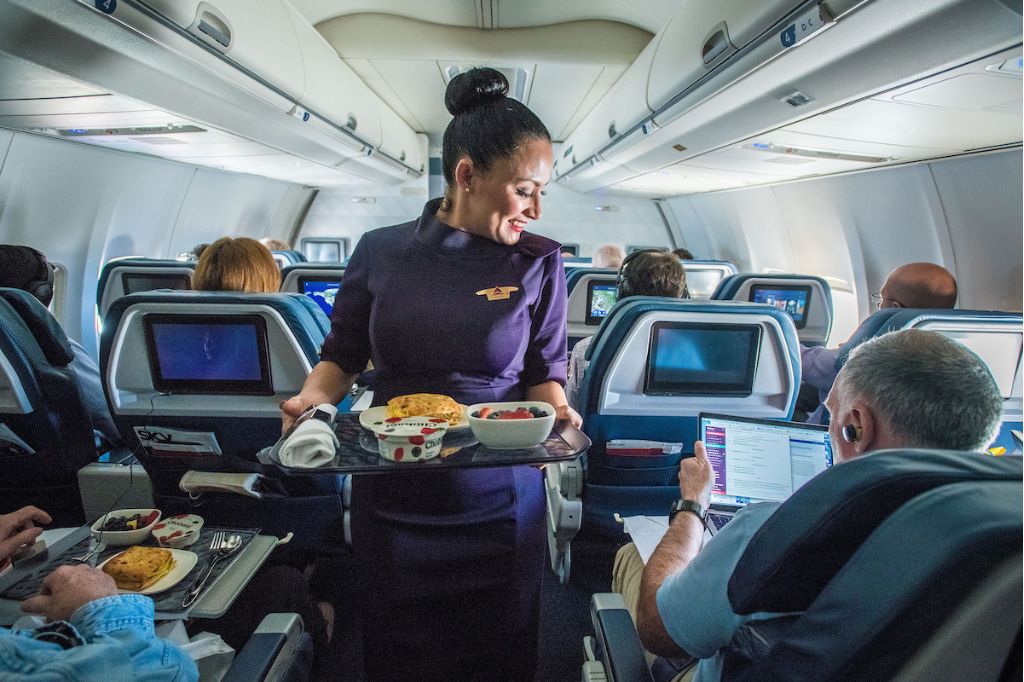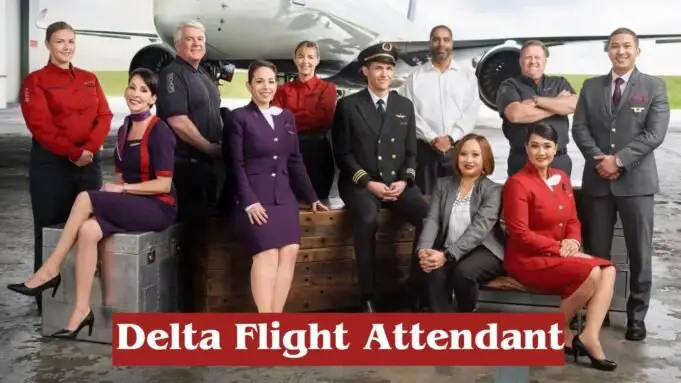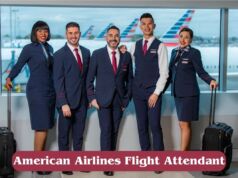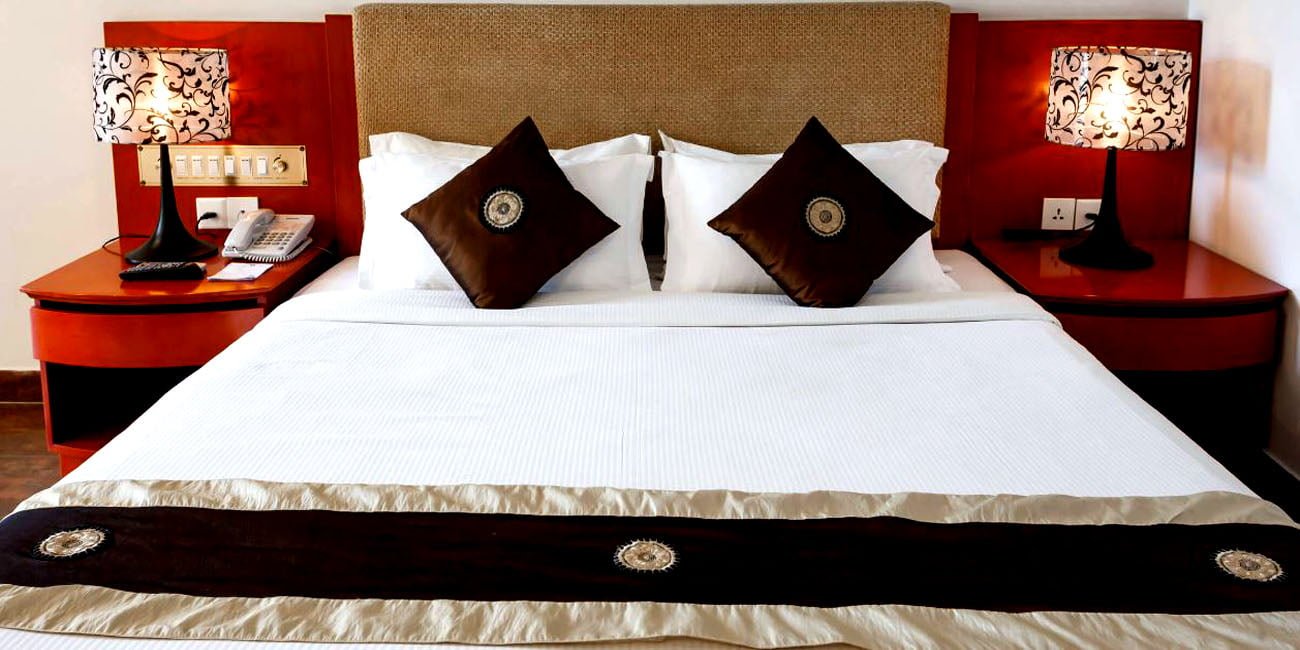Delta Air Lines, one of the world’s largest and most well-known airlines, has been soaring the skies since its founding in 1928. Renowned for its extensive domestic and international network, Delta serves over 300 destinations in more than 50 countries. The airline is not just a key player in the aviation industry but also a symbol of American ingenuity and resilience, continually adapting to the changing landscapes of travel and technology.
Delta Flight attendants are the heart and soul of the airline industry. They are much more than just cabin crew members; they are the face of the airline, ambassadors of safety, and providers of comfort. Ensuring passenger safety, giving instructions, and managing in-flight services, flight attendants play a pivotal role in enhancing the flying experience. Their ability to handle a variety of situations with grace and professionalism makes them indispensable to the aviation sector.
Becoming a Delta Flight Attendant
Requirements and Qualifications Needed
Aspiring to join the ranks of Delta’s esteemed flight attendants, candidates must meet specific criteria. They should be at least 21 years old, possess a high school diploma or GED, and have the legal right to work in the U.S. Fluency in English, both written and spoken, is mandatory, and proficiency in other languages is a plus. Candidates should also have a minimum of one year of work experience in personalized customer service, and the physical ability to perform all necessary duties is essential.
Overview of the Recruitment Process
Delta’s recruitment process is rigorous, reflecting the airline’s commitment to excellence. It typically starts with an online application, followed by an assessment. Successful candidates are then invited to participate in a video interview. The final stage is a face-to-face interview, often held at one of Delta’s hub locations. This process is designed to evaluate not just the candidates’ qualifications, but also their suitability for the demanding yet rewarding role of a flight attendant.
Training Program Details
Once selected, trainees undergo an intensive training program, usually lasting several weeks, at Delta’s training facility. This program covers a wide range of topics including safety procedures, emergency response, first aid, customer service, and the use of in-flight technology. Trainees also receive hands-on experience with aircraft equipment and simulations of various flight scenarios.
Related: Southwest Airlines Flight Attendants
What’s Required to be A Delta Flight Attendant?
Candidates must possess a high school diploma or GED, be eligible to work in the United States, have fluent English skills, and be at least 21 years old at the time of applying. New flight attendants hired must be fully vaccinated before starting their training, which means two weeks after receiving the second shot of the Pfizer or Moderna vaccine, or two weeks after a single dose of the J&J vaccine.
As Delta operates flights 24/7 throughout the year, its flight attendants need to be adaptable, and ready to fly on both international and domestic routes. Delta’s extensive network covers more than 300 locations worldwide, and there is a specific demand for candidates who are proficient in English plus one of these languages: Danish, Dutch, French, Italian, Greek, German, Japanese, Korean, Portuguese, Spanish, Czech, Swedish, or Hebrew.
A Delta flight attendant’s primary responsibility is to ensure passengers’ safety and comfort while delivering outstanding service. For a detailed understanding of the flight attendant role, the application process, and answers to common queries, refer to the 2024 Hiring Process Guide.
Day in the Life of a Delta Flight Attendant

Pre-flight Preparations
A Delta flight attendant’s day begins well before boarding. They participate in pre-flight briefings, where they review the flight details, including duration, expected weather conditions, and any special passenger needs. This is also when they check emergency equipment and ensure the cabin is clean and well-stocked.
Typical Duties During a Flight
During the flight, attendants are responsible for a wide array of duties. They conduct safety demonstrations, serve meals and beverages, and sell duty-free goods. Additionally, they routinely check on passengers, ensuring their comfort and addressing any concerns or requests.
Interacting with Passengers
Interpersonal skills are crucial as flight attendants interact with a diverse group of passengers. They assist with seating, answer questions, and often go the extra mile to make sure passengers have a pleasant experience. Whether it’s helping with luggage, providing travel tips, or just sharing a friendly conversation, these interactions form a significant part of their job.
Handling Emergencies
In emergency situations, flight attendants are trained to act quickly and efficiently. They are skilled in evacuating aircraft, administering first aid, and managing stressful situations to ensure passenger safety. Their ability to remain calm and decisive under pressure is a testament to their extensive training and professionalism.
Related Read: Philippine Airlines Flight Attendant
Advantages of Being a Delta Flight Attendant
Working as a Delta Flight Attendant offers a wealth of benefits. This role not only allows you to immerse yourself in various cultures, explore new places, and meet fascinating people but also includes unlimited standby travel for leisure purposes for both you and your eligible family members.
Key benefits include:
- A competitive salary complemented by a leading industry profit-sharing program and performance-based incentives.
- A 401(k) retirement plan featuring substantial company contributions of up to 9%.
- Paid leave encompasses vacation, personal time, as well as maternity and parental leave.
- Comprehensive health benefits cover medical, dental, and vision insurance, along with short-term/long-term disability and life insurance.
- Family care support, encompasses fertility assistance, surrogacy and adoption support, breastfeeding resources, subsidized backup care, and programs for care at all life stages.
- Holistic Wellbeing programs aimed at nurturing physical, emotional, social, and financial wellness. This includes access to an employee assistance program for household members, complimentary financial coaching, and extensive mental health resources.
- Flight privileges on a space-available basis for both domestic and international travel for employees and their eligible family members.
- Career development initiatives to support your long-term professional aspirations.
- Global partnerships focused on community service, and sustainability goals aimed at reducing carbon emissions.
- Business Resource Groups that foster inclusion and provide insights for strategy development, connecting employees with shared interests.
- The “Unstoppable Together” platform for recognizing and rewarding achievements.
- Deltaperks, offers access to over 500 discounts and specialty savings on car and hotel rentals, insurance (auto, home, pet), legal services, childcare, and more.
Challenges and Rewards
Common Challenges Faced by Flight Attendants
Flight attending, while rewarding, comes with its own set of challenges. Long, irregular hours and the physical demands of the job, including lifting luggage and standing for extended periods, can be taxing. Jet lag is another significant challenge due to constantly changing time zones. Flight attendants must also manage the high-stress environment to ensure passenger safety while maintaining a calm and friendly demeanor.
Rewards and Benefits of the Job
Despite these challenges, the role of a flight attendant is immensely rewarding. One of the most notable benefits is the opportunity to travel the world, often to exotic destinations, while working. Flight attendants enjoy meeting and interacting with diverse groups of people, which can lead to lasting friendships and unique cultural experiences. Additionally, many airlines offer competitive salaries, health benefits, and discounts on flights and accommodations for their employees.
Read More: Flight Attendant Salary
Career Progression and Opportunities
Advancement Opportunities within Delta
Delta Air Lines provides various avenues for career advancement for its flight attendants. With experience and demonstration of skill, attendants can progress to senior cabin crew positions, trainers, or even move into managerial roles within the airline’s corporate structure. Leadership roles involve overseeing cabin crew operations, training new recruits, or participating in customer service development.
Continuing Education and Training
Delta encourages ongoing education and training for its flight attendants. This can include advanced safety training, customer service excellence programs, and even language courses. Such opportunities not only enhance their skills but also prepare them for potential advancement within the company.
Career Longevity and Retirement Benefits
Delta offers a supportive environment for career longevity, with benefits that cater to long-term career growth. Retirement benefits, including pension plans and healthcare, are significant aspects of their employment package, ensuring a secure future for their employees after retirement.
Conclusion
The role of a Delta flight attendant goes far beyond serving meals and demonstrating safety procedures. They are crucial to ensuring passenger safety, comfort, and a positive flying experience. Their ability to handle a variety of situations with professionalism and grace under pressure is invaluable. They are the front-line ambassadors of Delta Air Lines, embodying the company’s values and commitment to excellent customer service.
The career of a Delta flight attendant is as challenging as it is rewarding. Their stories and experiences reflect a dynamic and fulfilling profession, integral to the fabric of the airline industry. As air travel continues to evolve, Delta flight attendants will undoubtedly remain vital to the airline’s success and reputation, continuing to deliver exceptional service in the skies.
Read Also: Norse Airlines Reviews
Frequently Asked Questions (FAQs)
Do flight attendants get training paid for?
Yes. airlines treat training as an integral component of a flight attendant’s responsibilities. Therefore, flight attendants begin receiving their wages as soon as they commence training at the designated facility.
How often do flight attendants get paid?
Typically, flight attendants are compensated on a monthly schedule by most airlines.
Can Delta flight attendants fly internationally?
Yes, Delta flight attendants have the opportunity to fly both international and domestic routes, as Delta operates a global network.
How do you become a Delta flight attendant?
To join as a Delta flight attendant, you need to fulfill the necessary qualifications, apply for an available flight attendant position, successfully be recruited, and then participate in Delta’s specific flight attendant training program located in Atlanta, Georgia.
Can Delta Flight Attendants Live Anywhere?
Yes, Delta flight attendants have the flexibility to reside in any location, regardless of whether it’s outside their base. They have the option to commute to their assigned base as needed. However, it’s important to note that new flight attendants may have limited choices regarding their domicile, as these are assigned based on the airline’s needs at each base. It’s crucial for new attendants, especially those still on probation, to ensure they can fulfill their assigned trips from their chosen place of residence.
How long is the training program for Delta flight attendants?
Delta’s flight attendant training program typically lasts for several weeks and takes place at their training facility in Atlanta, Georgia. It includes both classroom learning and practical exercises.
Do Delta flight attendants have to relocate to a specific base?
New Delta flight attendants are assigned to a base depending on the airline’s needs, which may require relocation. However, they are allowed to live elsewhere and commute to their base for their assigned trips.



![What Does Aviates Stand for in Aviation? [The Art of Flying] Aviates](https://tourinplanet.com/wp-content/uploads/2024/07/Aviates-238x178.jpg)


![What is The Marvelous VFR C500? – [Key Features and Overview] Marvelous VFR c500](https://tourinplanet.com/wp-content/uploads/2024/07/Marvelous-VFR-c500-238x178.jpg)



![What Does Aviates Stand for in Aviation? [The Art of Flying] Aviates](https://tourinplanet.com/wp-content/uploads/2024/07/Aviates-100x75.jpg)














![25 Best Peruvian Foods You Must Try In Peru [With Recipes] Peruvian Food](https://tourinplanet.com/wp-content/uploads/2024/07/Peruvian-Food-100x75.jpg)


